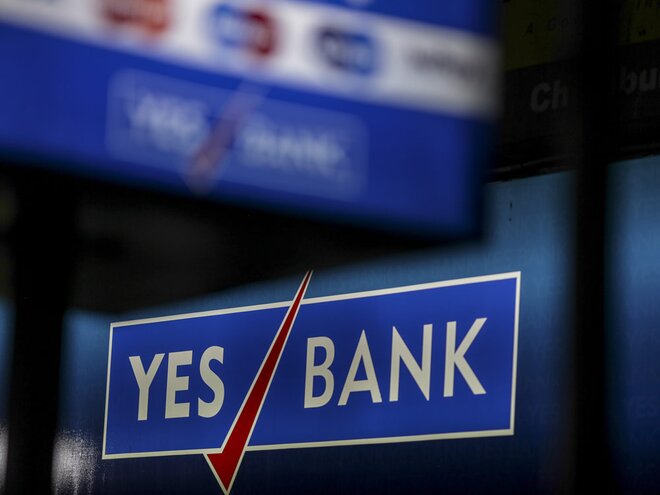
The Reserve Bank of India (RBI) imposed a month-long moratorium on Yes Bank last evening. The moratorium period is likely to last till April 3 and the bank would remain barred from paying more than Rs 50,000 per depositor during this period. The bank has also been restricted from granting any loans or advances.
RBI took this hard step following the bank's failure to show any improvement in its financial position over the past few quarters. Yes Bank has been in the news for quite some time now. It faced certain governance-related issues and had a dubious loan book.
Apart from bank account holders, many mutual fund investors are now anxious. As many as 103 mutual fund schemes had a collective exposure of about 3,400 crore to various stocks and bonds of Yes Bank as on January 31, 2020. The portfolio details for February has not yet been shared by all fund houses.Therefore, it is difficult to say how the position looked by February end.
Out of the 103 schemes, 66 are equity, 16 are debt and 21 belong to the hybrid category. If we talk about the exposure to Yes Bank at the AMC level, Nippon India had the highest exposure of Rs 1,867 crore followed by Franklin Templeton (about 511 crore) as of January 31, 2020.
As expected, the stock price of Yes Bank tumbled big way today, which is likely to reflect on today's NAV. It tumbled by about 85 per cent in the initial hours of the market and then, settled with a fall of about 55 per cent by the time the market closed. Since Yes Bank has been a part of the NIFTY 50, it is present in many index funds and ETFs, which track the index. The following are the equity funds having exposure of more than one per cent of their AUM to Yes Bank. As seen, most of them are either index funds or ETFs.
| Scheme Name | Category | AUM (%) | Value (Rs Cr) |
| Nippon India Retirement Fund - Wealth Creation Scheme | Equity: Multi Cap | 2.08 | 36.03 |
| DSP Equal Nifty 50 Fund | Equity: Large Cap | 1.60 | 1.62 |
| ICICI Prudential Private Banks ETF | Equity: Sectoral-Banking | 1.33 | 11.38 |
| Tata Nifty Private Bank Exchange Traded Fund | Equity: Sectoral-Banking | 1.30 | 0.19 |
| Nippon India ETF Sensex Next 50 | Equity: Large Cap | 1.07 | 0.13 |
| SBI ETF Sensex Next 50 | Equity: Large Cap | 1.07 | 0.03 |
| UTI S&P BSE Sensex Next 50 ETF | Equity: Large Cap | 1.07 | 0.16 |
| Equity funds with exposure of above one per cent of AUM to the stock/bond/NCDs of Yes Bank, as on January 31, 2020. | |||
When it comes to the exposure to bonds and NCDs of Yes Bank, a markdown is expected. In a press release, Nippon India Mutual Fund has already revealed its decision to mark down the value of the perpetual bonds issued by Yes Bank to zero. As per the press release, valuation agencies recommended to mark down the value from Rs 73.8 to Rs 47.5 - about 36 per cent. Nevertheless, it seems the fund house has taken extra caution.
| Scheme Name | Category | AUM (%) | Value (Rs Cr) |
| Baroda Treasury Advantage Fund | Debt: Low Duration | 26.87 | 24.14 |
| Nippon India Strategic Debt Fund | Debt: Medium Duration | 21.25 | 436.33 |
| IDBI Credit Risk Fund | Debt: Credit Risk | 12.09 | 7.21 |
| Nippon India Credit Risk Fund | Debt: Credit Risk | 10.95 | 540.10 |
| UTI Credit Risk Fund | Debt: Credit Risk | 6.38 | 71.25 |
| PGIM India Credit Risk Fund | Debt: Credit Risk | 6.20 | 21.93 |
| UTI Medium Term Fund | Debt: Medium Duration | 3.39 | 7.35 |
| Baroda Credit Risk Fund- Plan A | Debt: Credit Risk | 3.06 | 18.02 |
| Franklin India Short Term Income Plan | Debt: Short Duration | 2.71 | 281.09 |
| Franklin India Credit Risk Fund | Debt: Credit Risk | 2.42 | 135.24 |
| Sundaram Medium Term Bond Fund | Debt: Medium Duration | 1.82 | 1.44 |
| Franklin India Dynamic Accrual Fund | Debt: Dynamic Bond | 1.47 | 54.42 |
| Kotak Credit Risk Fund | Debt: Credit Risk | 1.23 | 62.99 |
| Mahindra Credit Risk Yojana | Debt: Credit Risk | 1.07 | 1.60 |
| Kotak Medium Term Fund | Debt: Medium Duration | 0.94 | 30.85 |
| L&T Resurgent India Bond Fund | Debt: Medium Duration | 0.28 | 4.97 |
| Debt funds with exposure in bonds and NCDs of Yes Bank as on January 31, 2020. | |||
Now, it is better for the investors of all these funds not to act in haste and monitor the situation. A big markdown is already there. Stay calm and stay invested. You have already incurred the loss and redeeming your investment will only make it permanent. RBI has already taken the control and with the involvement of SBI, things are unlikely to get worse.








